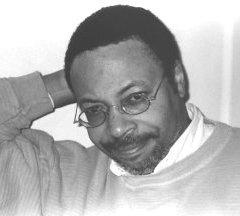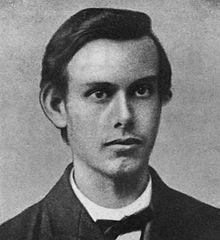John Keats Quotes - Page 4

The creature has a purpose, and his eyes are bright with it.
Letter to George and Georgiana Keats, 19 March 1819, in H. E. Rollins (ed.) 'The Letters of John Keats' (1958) vol. 2, p. 80
John Keats (1925). “Poetical Works”
John Keats, Helen Vendler (1990). “Poetry Manuscripts at Harvard”, p.36, Harvard University Press
I wish to believe in immortality-I wish to live with you forever.
Letter to Fanny Brawne, June 1820, in H. E. Rollins (ed.) 'The Letters of John Keats' (1958) vol. 2, p. 293
And when thou art weary I'll find thee a bed, Of mosses and flowers to pillow thy head.
John Keats (1818). “The Complete Works of John Keats”, p.172
We read fine things but never feel them to the full until we have gone the same steps as the author.
Letter to J. H. Reynolds, 3 May 1818, in H. E. Rollins (ed.) 'The Letters of John Keats' (1958) vol. 1, p. 279
Letter to George and Thomas Keats, 21 Dec. 1817
'The day is gone, and all its sweets are gone' (written 1819)
Letter to Benjamin Bailey, 13 March 1818, in H. E. Rollins (ed.) 'The Letters of John Keats' (1958) vol. 1, p. 242
John Keats (2013). “Delphi Complete Works of John Keats (Illustrated)”, p.647, Delphi Classics
What is there in thee, Moon! That thou should'st move My heart so potently?
John Keats, “Endymion: Book III”
A man should have the fine point of his soul taken off to become fit for this world.
Letter to J. H. Reynolds, 22 November 1817, in H. E. Rollins (ed.) 'The Letters of John Keats' (1958) vol. 1, p. 188
Endymion bk. 1, l. 1 (1818)
Everything that reminds me of her goes through me like a spear.
John Keats (2009). “Selected Letters of John Keats: Revised Edition”, p.480, Harvard University Press
There is nothing stable in the world; uproar's your only music.
Letter to George and Thomas Keats, 13 January 1818, in H. E. Rollins (ed.) 'The Letters of John Keats' (1958) vol. 1, p. 204
Letter to George and Georgiana Keats, 14 Oct. 1818
Jane Campion, John Keats (2009). “So Bright and Delicate: Love Letters and Poems of John Keats to Fanny Brawne: Love Letters and Poems of John Keats to Fanny Brawne”, p.24, Penguin UK
John Keats (1820). “The Complete Works of John Keats”, p.161
'To Homer' (written 1818)
"Ode on a Grecian Urn" l. 46 (1820)
was it a vision or a waking dream? Fled is that music--do I wake or sleep?
'Ode to a Nightingale' (1820) st. 8
Conversation is not a search after knowledge, but an endeavor at effect.
John Keats, Baron Richard Monckton Milnes Houghton (1848). “Life, Letters, and Literary Remains, of John Keats”, p.59






